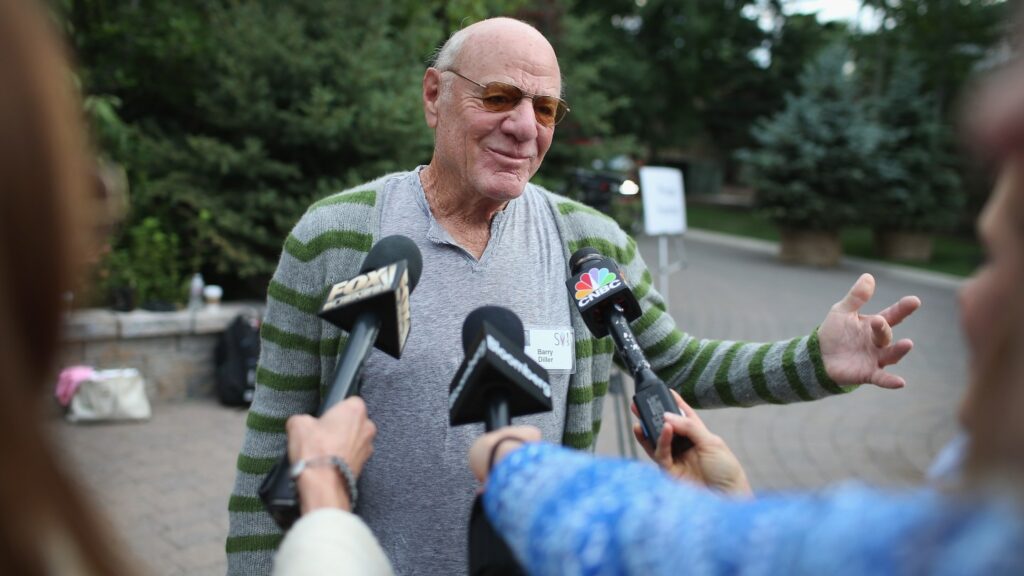How close was Barry Diller to taking control of Paramount Global? If my recollection of his pursuit is accurate, he was closer than some reports have made him seem.
Diller said at the Financial Times summit on Friday that he was seriously interested in buying the studio more to “balance my life” than for any other reason.
“At age 52, I was in a bidding war with Redstone[for Paramount]and we ended up deciding not to make a final bid and buying it,” he continued. “Then another 30 years passed and the idea came up again. I saw it as an obligation, not an aspiration. I thought I knew what to do. And if you have a company that’s been doing poorly for 15 years and you want to acquire that asset and it’s still running low on fuel, that’s a great opportunity and we looked at it seriously.”
Diller believes his pursuit ultimately hastened Skydance’s successful acquisition of the company (Redstone “should send a nice bouquet of flowers or chicken soup,” he joked), but after the deal was signed, he decided to back out.
“Once Skydance signed the deal, it became a formality, and if you outbid Skydance, you either won or you didn’t, so I decided not to participate in the auction,” Diller said, “and I also decided I didn’t really want an auction.”
Of course, the media mogul also spoke out about the current state of Hollywood, reiterating that established studios will face an uphill battle against the tech giants.
“The soil is no longer fertile,” Diller said. “It’s just that we’re facing challenges that we’ve never seen before. I don’t mean that the old established companies are going out of business. I really don’t think that’s going to happen, but I don’t think they’re going to take over the world.”
“Hollywood is no longer hegemonic,” he continued. “What is the definition of Hollywood leadership? The definition is that it has shifted to technology companies. Netflix, Amazon, Apple are the dominators of what everyone calls the global film and television industry. It’s a country that is, to say the least, far removed from what Hollywood is supposed to be.”
And he argued that the desire of some companies, such as Warner Bros. Discovery, to move forward with consolidation is utopian at best.
“I’m not a fan of consolidation. I think it’s all just a myth of people with big egos who want to say how important scale is,” Diller said. “If you have the distribution channels — if you can get the product out there, and today there are so many different ways to get your product to an audience — you basically just press a computer key and put it out there for the world to see. So size doesn’t matter. What matters is whether you’re making shows, movies, TV, products that people want to watch. If you’re better at that than your competitors, you’ll do well. You’re never going to change the actual terrain because tech companies have so much capital.”
He also spoke out about artificial intelligence, telling the conference that he has seen some advanced models in development, saying, “I think we are on the verge of having true artificial general intelligence within the next few months, maybe even the next year. It will be so amazing, it will be nearly impossible to comprehend.”
As for what this means for Hollywood, “For anyone in the animation industry, hiring hundreds or thousands of people to make an animated movie was a huge hiring spree that was incredibly costly just for the CGI work,” Diller said. “I don’t think anybody is going to need that anymore.”



